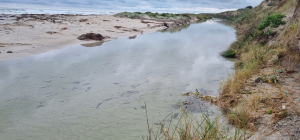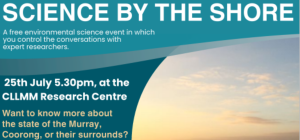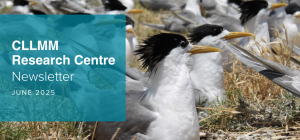The South Australian Department for Environment and Water has recently commissioned the Goyder Institute for Water Research to investigate the potential to create an environmental, social and governance (ESG) rating system for water resources across the state. If feasible, the water rating system would be applied to both ‘native’ (i.e., natural waterways and groundwater systems) and manufactured (e.g., desalinated, recycled wastewater, stormwater, etc.) water resources and consider their sustainability for all water users and uses.
To explore the feasibility of an ESG water rating system, the project will review existing systems for natural resource management across the world and their potential to be adapted for water resources of South Australia. There are several existing state, national and international rating systems that are focused on businesses demonstrating their sustainable management of natural resources with consideration of the impact on the environment or communities. The International Water Stewardship Standard (or AWS Standard), for example, is a globally applicable framework for major water users to understand their water use and impacts. Other examples include sustainable fisheries certification systems developed under the Global Sustainable Seafood Initiative, and forestry certification systems such as the Forestry Stewardship Council.

The research project is being led by Dr Bethany Cooper of the University of South Australia and supported by Professor Lin Crase (University of South Australia), Professor Sarah Wheeler (The University of Adelaide) and Professor Craig Simmons (Flinders University). In addition to investigating the potential to adapt existing ESG rating systems, the project team will develop some scenarios to test the benefits and disbenefits of different approaches, with findings presented in a report to the Department for Environment and Water.
If feasible, such a system may help industries and communities to show that the water sources drawn on, or impacted by their activities, are managed sustainably from both an environmental and cultural/social perspective. In doing so it may assist investors who are looking to ensure that their funds are being applied to projects that are aligned with their values. Through the project, findings will be discussed with a number of agency and industry representatives to obtain their views on the value and feasibility of such an approach.
This research contributes to all Impact Areas of the Institute’s Strategic Plan 2020-2023, with an overarching vision of the Institute to enhance the vibrancy of communities of South Australia and Australia by being a leader of impactful research for sustainable, innovative and integrated water management.
Future e-news articles will provide updates on project progress. For further information about the project please contact the director of the Goyder Institute, Dr Kane Aldridge.



